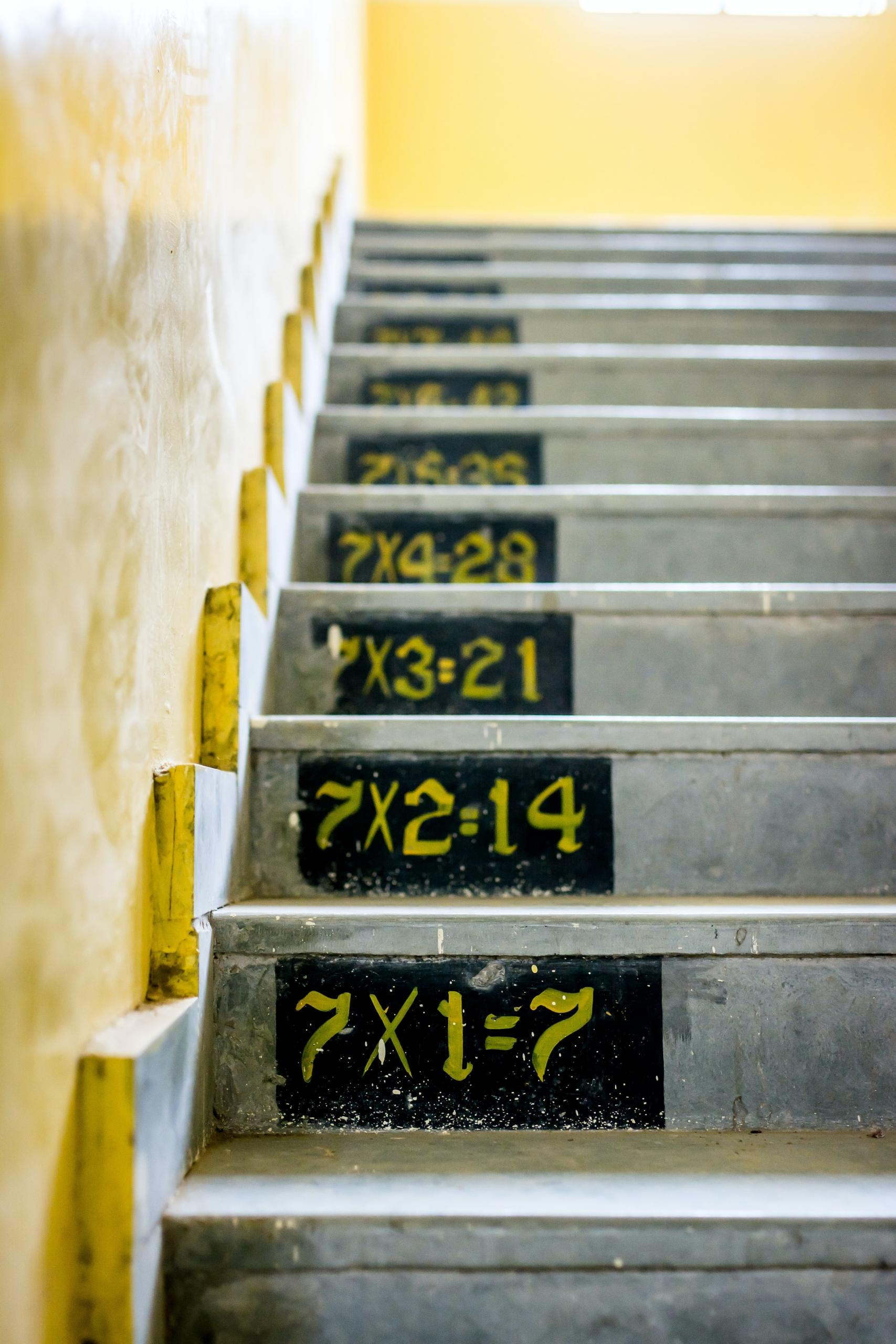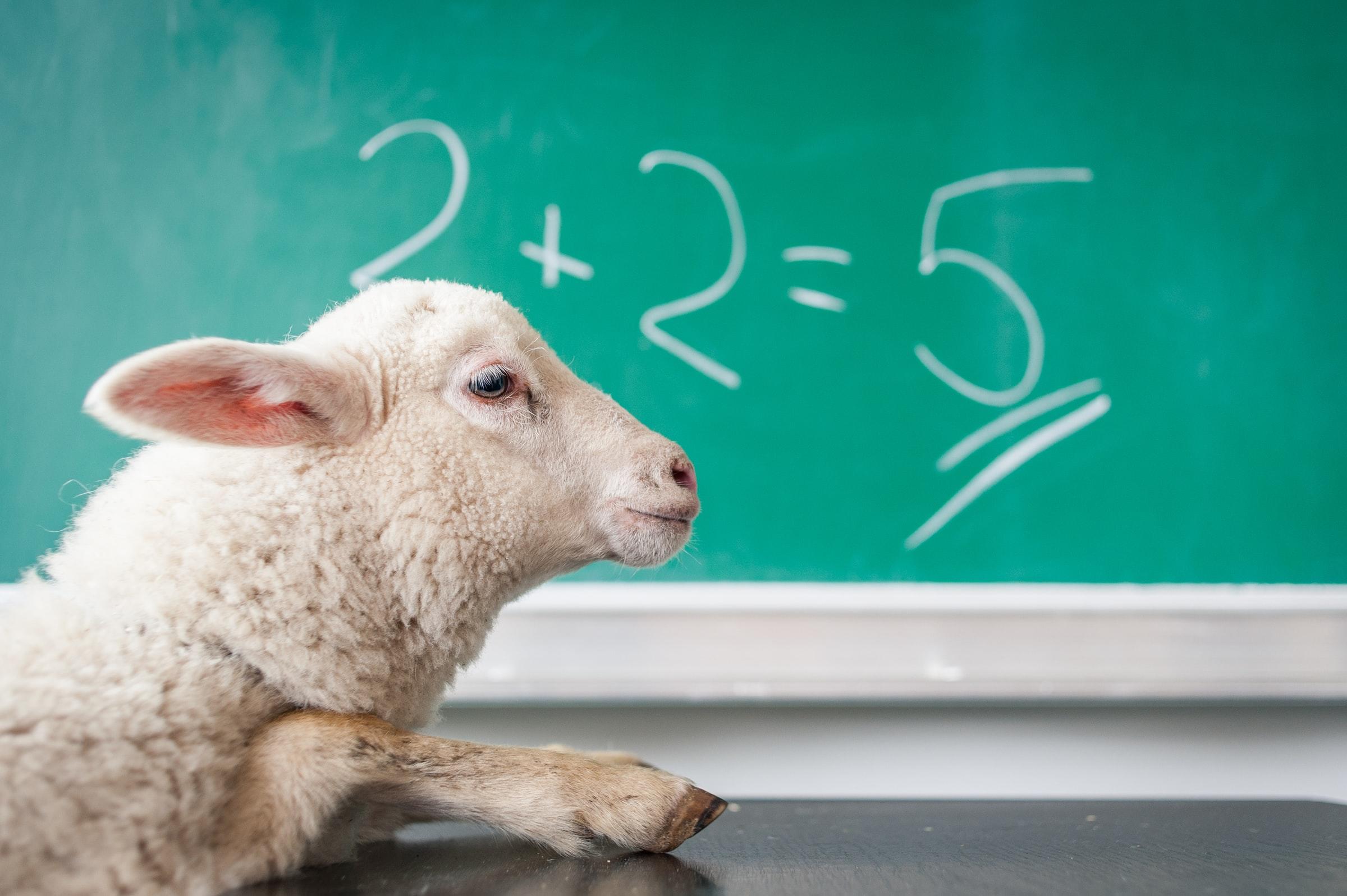Short answer, yes. Is it compulsory? No. Whether or not to continue studying maths can be a tricky decision for students who feel unconfident about the subject. Maths is one of those subjects that has some elitist connotations attached to it. The idea that it is just for the brainy students or the high flyers can be very misleading. When deciding what subjects to continue on with for level 2, some students can get sidetracked by the idea that you have to be getting merits and excellences in order to continue on with the subject. However that is not the case, achieved means that you are at the level, and you are doing what is expected. Achieved means you have understood and grasped the skills needed to continue forward. Even if you have found level 1 a challenge, this guide helps to look at the possible avenues that can open for you if you decide to continue your educational journey in maths.

Flow on from NCEA level 1
NCEA works as a staircase, each year you become one step closer to the top, finishing school with a Level 3 University Entrance certificate. In order to gain Level 3 with UE, you must have 10 numeracy credits. Technically you need to gain them in year 11 in order to pass level 1, however, NCEA has some flexibility built into it and you can gain them in level 2. For example, if you gained 8 credits in level 1 maths and then you pass a level 2 standard worth 3 credits, you have your 10 numeracy credits.
Without literacy and numeracy credits within your 80 credits for level 1, unfortunately, you can not pass. Numeracy credits can come from other subjects such as science, but not all. After all, credits are not the end game, they are objectives you accomplish as you level up your skillset. Each year you advance your skills within certain subjects that are transferable to other spaces. Problem-solving in mathematics improve skills that you will need in real life. For example, working out problems that have multiple inputs such as how many hours a week do I need to work in order to cover my rent and bills?
Check out NCEA level2 maths past papers here.

There is a bit of a jump between level 1 and Level 2 in regard to the expectations in the achievement criteria. You will need to learn more concepts in greater detail. Maths does retain a similar format to level 1. Where we start to see a difference is that the subject is no longer compulsory. It is your choice to continue, a really good one indeed. There will be a variety of topics covered but a majority of schools do not ask students to specialise in a particular area of maths, unlike in level 3 where there is a choice between statistics and calculus.
Another difference is there is no minimum of credits you need to gain in mathematics to pass level 2. By stepping out of maths too early it can lead to some complications further down the track. Maths is a University Entrance approved subject, by not taking it in level 2, you will be unable to re-join the subject during level 3. If you change your mind and decide to continue your education that requires level 2 maths, it puts you in a tricky spot as you may have to take a bridging class.
Bridging classes help students get the required entrance subjects they need if they have not met them, the downside is that you have to pay quite a bit to do them. Some vocational studies may also require you to have a minimum of level 2 maths. Speak to the careers counsellor at school about different options you are interested in pursuing and what they require in order for you to gain entry into the course or programme.
Topics you will study in level 2 maths
NCEA is continually getting reviewed and modified for the future to come. That means that you will be able to start getting recognition for certain skills across a broader range of subjects, such as gaining literacy credits in history or social studies classes instead of just in English. The advantage of continuing on with maths in level 2 is that you will learn different skills that can be used in other subjects. For example, you will learn how to create and apply graphs and statistics in maths, with those skills in mind you can use that knowledge to create and analyse data in your geography class.
Read about how you can understand NCEA Level2 maths questions here.

The level 2 curriculum focuses on six overarching topics. These topics are; patterns and relationships, equations and expressions, calculus, statistical investigations, statistical literacy, and probability. The topics overlap in skill set so you will be doing a bit of trigonometry for equations and patterns. For more in-depth details about the topics, check out the New Zealand curriculum website and click level 7. The purpose of these topics is to get you to develop your problem-solving skills and to use the most relevant model situations in regard to particular contexts.
Continuing your studies after NCEA
The utility of mathematics across a wide range of subjects cannot be stressed enough. By continuing on with level 2 maths, you are supporting yourself with a solid understanding of how to apply a range of different concepts in a variety of situations that are transferable to other parts of your life. It is not only important for those who want to go to university. From design, painting, marketing, sales, building, plumbing, and nursing, they all need you to know some maths. Planning shifts, allocating hours, measuring building sites, and working out profit margins. All of the basics you need to complete these tasks, you learned in level 1 and in level 2.
NCEA is about learning skills more than memorising information. By learning different topics such as geometry, you can take your understanding of the properties of space, such as shapes, sizes, distance, and relative positions of figures, and apply it to a range of different situations. Painting a wall and need to know how much paint you are going to need? Geometry. Sick of sitting next to the socket when your phone is charging? Working out the distance between the socket (point a) to a comfortable chair (point b) so you can buy a new extension cable with the correct length, and measurement. Figuring out the chance of the bus running late in the morning so you can get the extra 5 minutes of sleep, probability.
Discover how you can demystify the NCEA Maths level2 syllabus here.

So what exactly do you need? That depends on what exactly you want to do. For those who wish to move on to starting an apprenticeship having level 2 is considered a minimum requirement. At the same time that you are learning on the job, you will be attending classes to learn, practice, and certify your skillset. For example, if you are studying industrial building, how do you work out how much concrete you need in order to seal a certain surface? That is where maths comes in.
While it will be applied in a situation quite different to what you would find in school, by studying maths at level 2, you will have already encountered problems like this. This has a flow-on effect because it is a situation you have already experienced, using these maths concepts will be easier as you’ve already done it before compared to someone else who hasn’t. For more information check out our other guides on NCEA Level 2 maths.
After more information?
If you are still unsure about whether or not to continue with maths, a good person to talk to is the careers or guidance councillor at your school. They can help you figure out possible next steps and highlight different scenarios that can arise from your decision. If the idea of studying mathematics is making you feel uneasy, speak to your maths teacher so you can discuss different options available such as doing maths internally. For extra support in understanding mathematical concepts and skills, have a look at the wide range of maths tutors available on the Superprof website. There are tutors knowledgeable of the NCEA system who can create learning plans that work for you.
Summarise with AI:















